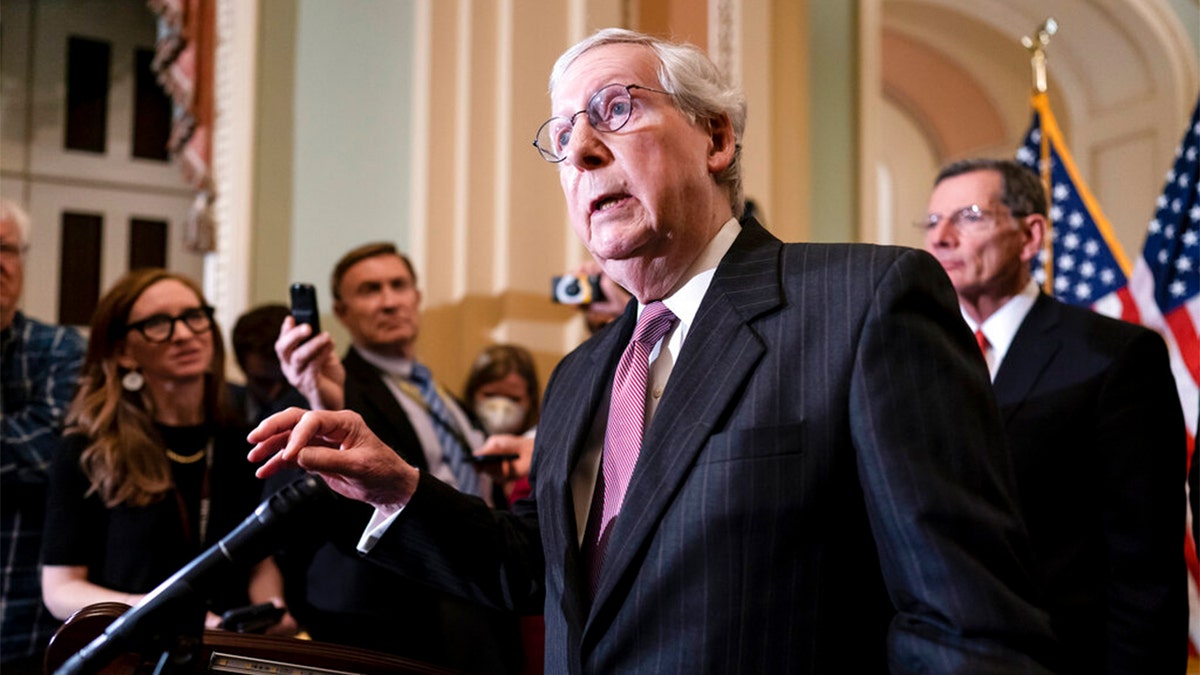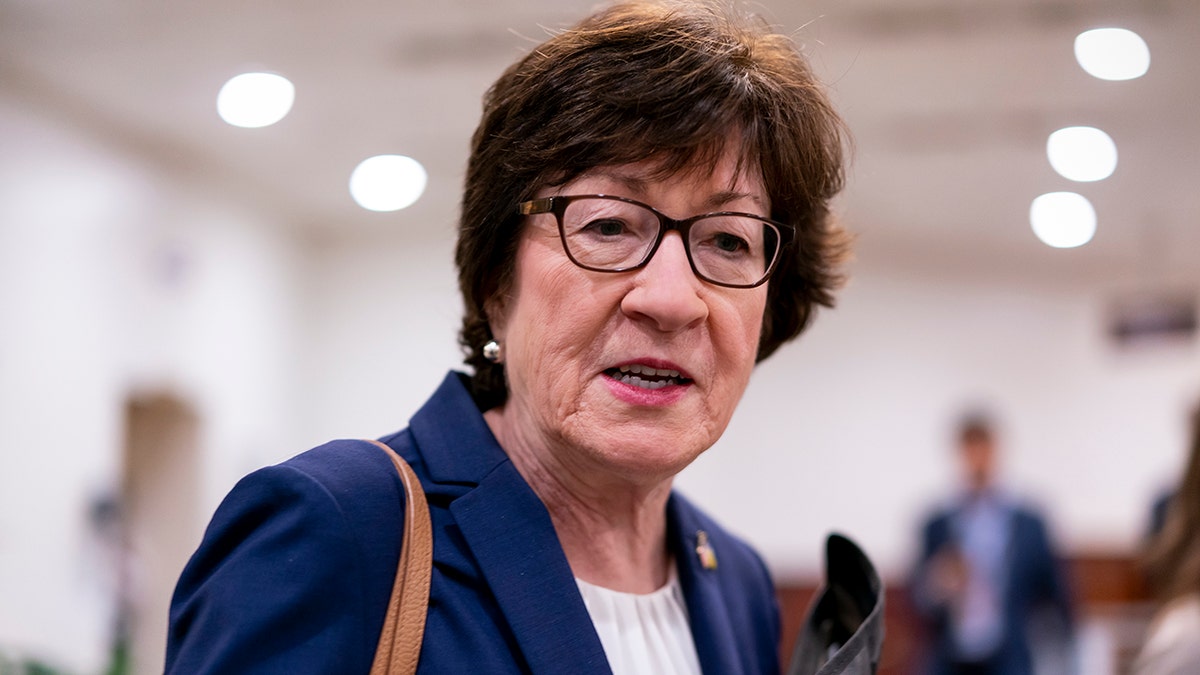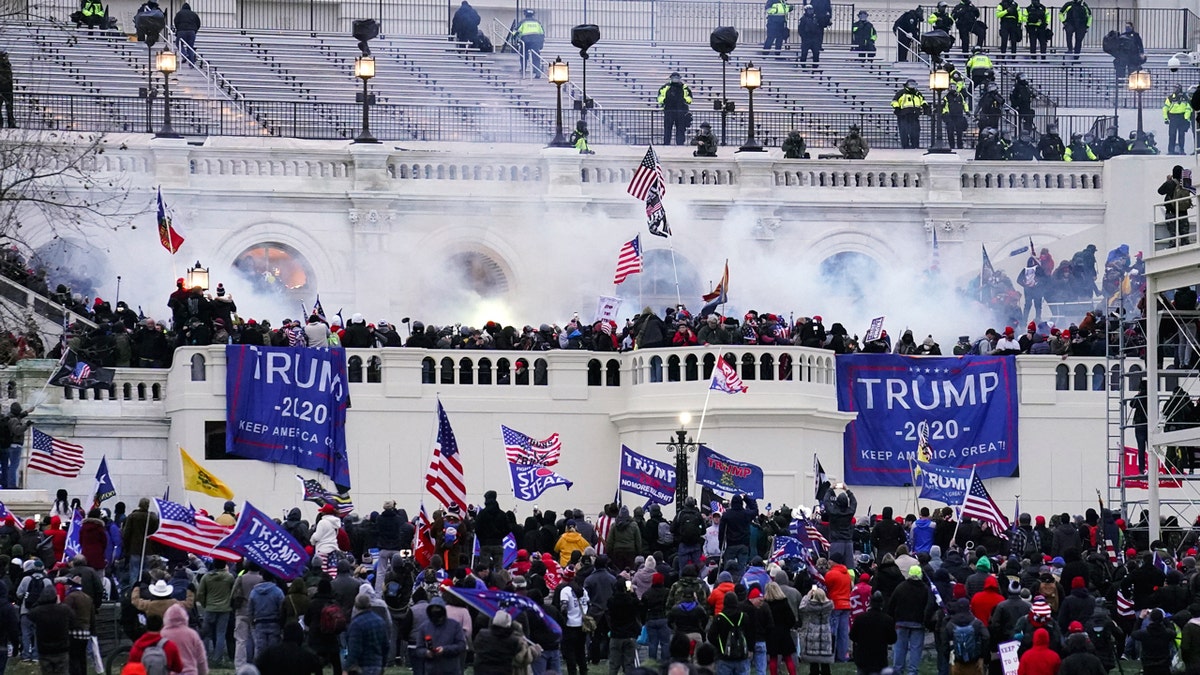Fox News Flash top headlines for September 27
Fox News Flash top headlines are here. Check out what's clicking on Foxnews.com.
Senate Minority Leader Mitch McConnell Tuesday announced his support for a bipartisan Senate bill to reform the Electoral Count Act, as lawmakers try to avoid a repeat of January 6.
McConnell in separate comments explicitly rejected House Democrats' rival bill, which last week got votes from just nine House Republicans, including Rep. Liz Cheney, R-Wyo.
"I strongly support the modest changes that our colleagues in a working group have fleshed out after literally months of detailed discussions," McConnell, R-Ky., said on the Senate floor.
Minutes later, in a hearing of the Senate Rules and Administration Committee, McConnell said he believes only the Senate bill can move in the Congress, and that the Cheney-backed plan has no chance.

Senate Minority Leader Mitch McConnell, R-Ky., said Tuesday that he supports the Senate's bill to modify the Electoral Count Act. (AP Photo/J. Scott Applewhite)
"It’s clear that only a bipartisan compromise originating in the Senate can actually become law," he said. "One party going it alone would be a non-starter. In my view the House bill is a non-starter."
Spearheaded by Sen. Susan Collins, R-Maine, and a group of moderate Democrats and Republicans, the bill had 22 sponsors – an even number from each party – before McConnell said he also backs it.

Sen. Susan Collins, R-Maine, is the chief author of a Senate bill to change the Electoral Count Act. (AP Photo/J. Scott Applewhite)
With McConnell behind the effort, and likely near-unanimous support from Senate Democrats, the legislation has a clear path to passing the upper chamber before the end of the year.
LIBERALS IN MEDIA ATTACK SINEMA FOR DEFENDING BIPARTISANSHIP, ‘FRIENDSHIP’ WITH MCCONNELL
"Senator McConnell’s support sends an important message," Collins said of McConnell's backing. "The Senate bill is a carefully crafted bipartisan reform that makes sensible and much-needed updates to the archaic and ambiguous Electoral Count Act of 1887."
The House and Senate bills are similar – both would clarify the vice president has only a ministerial role when electoral votes are counted, and both would make it harder for lawmakers to challenge electors. But some Republicans said the House bill goes too far in prescribing state rules for running elections.

Lawmakers are seeking to pass legislation to prevent another attack on the Capitol like the one on January 6, 2021 by a mob of Trump supporters. (AP Photo/John Minchillo) (AP Photo/John Minchillo)
"It raises the threshold of objecting to the electoral count, preserving options if something incredibly unlikely were to happen, but ensuring claims with hardly any support can's paralyze the process," McConnell also said of the Senate's bill. McConnell continued to say that the Collins bill avoids "capitulating to our Democratic colleagues’ obsession with a sweeping federal takeover of all of our election law."
CLICK HERE TO GET THE FOX NEWS APP
The Collins bill cleared a Senate Rules and Administration Committee vote 14-1 Tuesday, with Sen. Ted Cruz, R-Texas, as the lone dissenting vote.
In comments at the hearing, Cruz mirrored arguments from House Republicans that the bill goes too far in setting rules for the states that run elections. Cruz also accused Democrats of being "hellbent" on federalizing elections.
The comments from McConnell and Cruz indicate the House may have to take up the Senate-passed version later in the year, which would likely draw more support from Republicans but could lose support from House Democrats.














































